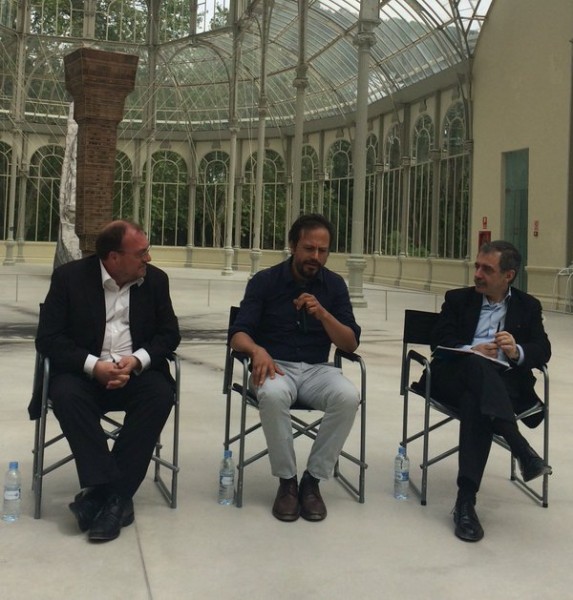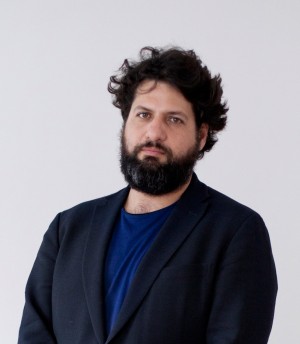Galerías y otras organizaciones que le representan
Organizaciones con obra
Profesionales con obra
Descripción del Artista
Danh Vo nació en 1975 en Vietnam y se estableció con su familia en Dinamarca en 1979. Vo, que ahora vive en la ciudad de México, ha tenido exposiciones individuales en importantes museos e instituciones culturales como The Renaissance Society de Chicago; el Solomon R. Guggenheim Museum, en Nueva York; Kunsthalle Basel; Kunsthalle Friedericianum, en Kassel; y la Kadist Art Foundation, en París.
Vo, que ganó el prestigioso X Hugo Boss Prize 2012, explora las intersecciones que tienen lugar entre las experiencias personales y los eventos históricos, y estudia en particular la propagación, el impacto y las mutaciones del catolicismo a través de los procesos de colonización. Su obra refleja las paradojas inherentes a la construcción de la identidad, y el uso que le da a los objetos evoca las circunstancias históricas que dieron forma a nuestro mundo contemporáneo. Acerca de esto, el artista ha comentado: "No creo que las cosas vengan desde nuestro interior. Para mí, son producto de un diálogo continuo que tenemos con nuestros alrededores".
Danh Vo was born in Bà Rịa, Vietnam, in 1975. His family fled the trauma of postwar Vietnam in 1979 on a handmade boat: though intended for the United States, their vessel was rescued by a Danish shipping freighter, and they were brought to Denmark where they were granted political asylum and citizenship. Vo is a graduate of the Kongelige Danske Kunstakademie, Copenhagen (1998–2002), and the Städelschule, Frankfurt (2002–05). His practice, existing at the intersection of autobiography and collective history, explores the signification found within archival traces as well as the malleable nature of personal identity. With references to migration and integration, Vo’s largely conceptual body of work destabilizes the embedded structures of legitimacy within citizenship and identification.
Vo’s practice deploys autobiography to question the existence of a rooted identity despite the circumstantial nature of many aspects of life. The conceptual work Vo Rosasco Rasmussen (2002–) involves the artist’s marriage to and immediate divorce from a growing list of important people in his life. Assuming and amassing the surnames of his temporary spouses, Vo authors his own history by collecting fragments of identities through the institutional conventions of marriage. Further exploring representations of identity, Vo collects the personal belongings of his family members, ready-made artifacts symbolic of a particular aspiration or standard. Oma Totem (2009), a stacked sculpture of his grandmother’s welcome gifts from a relief program on her arrival in Germany in the 1980s, displays her television set, washing machine, and refrigerator (adorned with her own crucifix), among other items. Vo cast the sculpture’s facade and made a marble tombstone, Tombstone for Nguyen Thi Ty (2009), which will act as a totemic marker at his grandmother’s burial site. Das Beste oder Nichts (2010) is a piece composed of the engine from his father Phung Vo’s Mercedes-Benz, a vehicle that is at once emblematic of success in the West and of his father’s identity. For this work as well as others, the engine and other symbols of his father’s determination and success, such as a gold Rolex watch, Dupont lighter, and U.S. military ring, represent both a new selfhood and an all-but-forgotten past. Also integrated within Vo’s work is an analysis of authorship, as in 2.2.1861 (2009–) in which the last letter of Catholic Saint Théophane Vénard to his father before his execution for proselytizing in Vietnam is copied by Danh Vo’s father, who is a skilled calligrapher. Repeatedly writing the work by hand, Phung Vo archives the address of each collector and mails it by post, a process that illuminates a piece of Vietnam’s past while narrating a wider history of displacement, familial relationships, and the vagaries of communicating across cultures.
We the People (2010–14) continued Vo’s interest in identity while shifting the focus beyond the personal. The work is a life-size recreation of Frédéric Auguste Bartholdi’s Statue of Liberty, made with the same materials and techniques as the original. However, the approximately 250 individual pieces are left unassembled, rendering the colossal icon on a more human scale. Through its presentation, We the People invites questions about the relationships between the state and an individual’s national identity.
Vo was nominated for the Preis der Nationalgalerie für junge Kunst (2009) and awarded the Blau Orange Kunstpreis der Deutschen Volksbanken und Raiffeisenbanken (2007) and the Hugo Boss Prize (2012). His work has been the subject of solo presentations at a range of international institutions, including the Royal Academy of Arts, London (2001); Stedelijk Museum, Amsterdam (2008); Kunsthalle Basel (2009); Artists Space, New York (2010); Statens Museum for Kunst, Copenhagen (2010–11, 2012); Kunsthalle Fridericianum, Kassel, Germany (2011); Kunsthaus Bregenz, Austria (2012); Académie de France à Rome-Villa Medici (2013); the Solomon R. Guggenheim Museum, New York (2013); Musée d’art moderne de la Ville de Paris (2013); and Museo Jumex, Mexico City (2015). He has participated in a number of international group exhibitions, including the Berlin Biennial (2010, 2014); Singapore Biennial (2011); New Museum of Contemporary Art Triennial, New York (2012); Venice Biennale (2013); Triennale di Milano (2014); and the Whitney Biennial (2014); as well as those at the Istituto Svizzero, Rome (2010); Kunsthalle Basel (2010); Fundació Joan Miró, Barcelona (2011); and Centre Georges Pompidou, Paris (2014). Vo lives and works in Berlin.
Text extracted from Guggenheim: https://www.guggenheim.org/artwork/artist/danh-vo
Artistas similares

Actualidad, 05 may de 2016
El Reina Sofía abre las puertas de Hispanoamérica a Damián Ortega
Por ARTEINFORMADO
El Palacio de Cristal del Parque de Retiro, en Madrid, acoge su primera exposición en España así como su estreno 'en el mundo hispánico fuera de México'.

Actualidad, 27 may de 2013
Juan Andrés Gaitán anuncia su equipo comisarial para la 8ª Bienal de Berlín
Por ARTEINFORMADO
El comisario independiente y escritor canadiense-colombiano Juan Andrés Gaitán (Toronto, 1973), comisario de la próxima 8ª Bienal de Berlín, ha elegido a las comisarias Mariana Munguía (México, Guadalaj

Formación. 08 may de 2025 - 17 may de 2025 / Museo Nacional Centro de Arte Reina Sofía (MNCARS) / Madrid, España